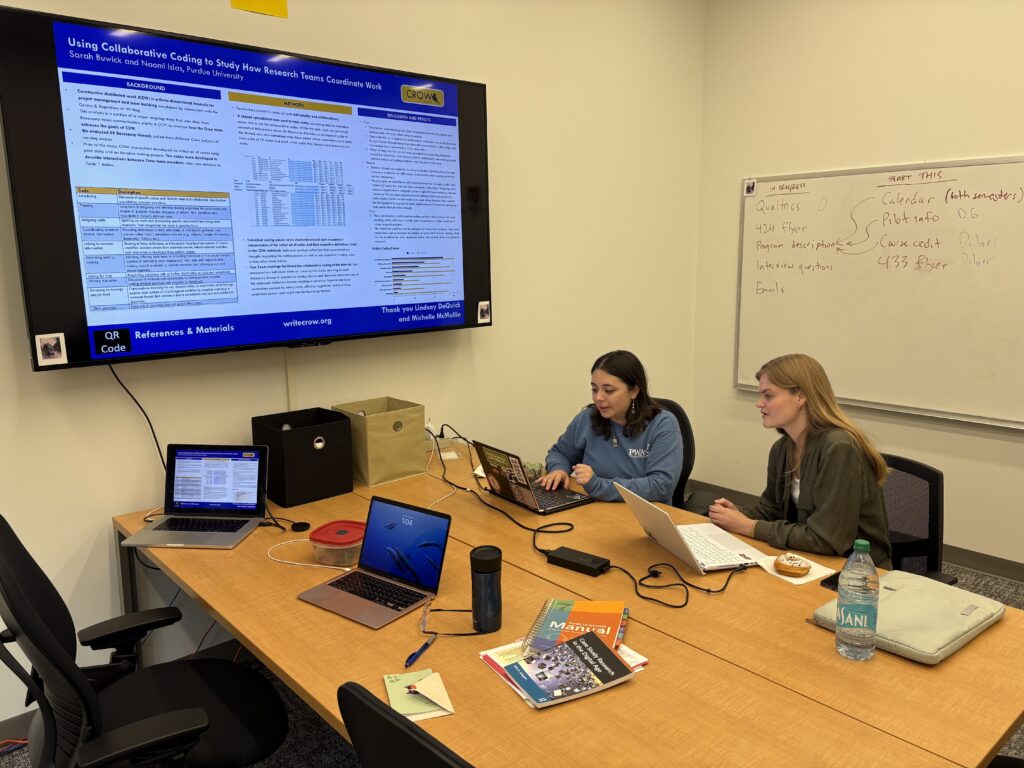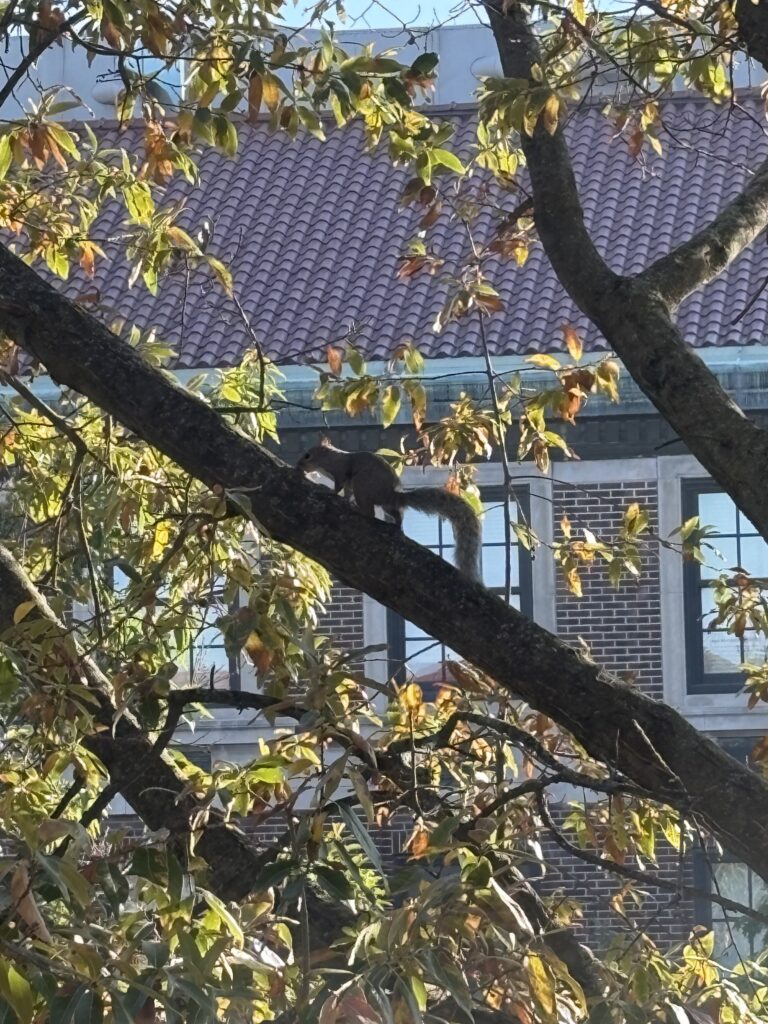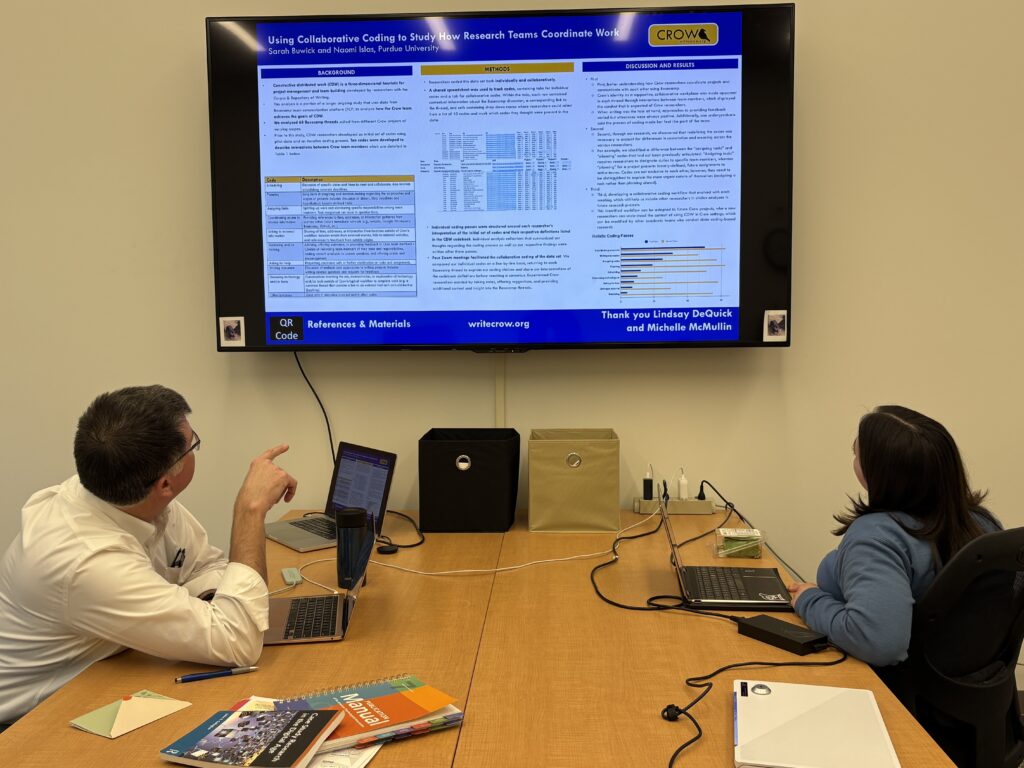
In the spirit of fall bringing new change, Purdue University CROW members have settled into their new lab at Stanley Coulter Hall. With its more centralized location and updated features- the adjustment wasn’t too much of a challenge. When talking with Naomi Islas and Sarah Buwick, seniors at the university, they provided a more in-depth tour of what makes this new space so special.
The lab, or Crow Space, as they like to call it, was built with large ceilings and windows that provide a lively view. Students walking are visible through the trees, or their squirrel friend, who makes frequent appearances, sitting on the window sill. They can also enjoy the perks of having a large monitor for display and wide table space. The lab is also equipped with a mini-fridge that’s always full, a fancy new coffee maker, bulletin boards, and computers & printers.

It’s a collaborative space. One that is not only shared with ExLing (Purdue Experimental Linguistics Lab), whose research focuses on second language acquisition learning, but also other professors and graduate students working in Purdue’s writing programs. They swap stories, gain new insight, and build a strong connection with each other. This space hosts their tight-knit community.
The research Sarah and Naomi are engaged in emphasizes collaboration and community, mirroring the space they occupy. As undergraduate students, they never imagined that there would be opportunities for publishing research. They first became part of things when Dr. Michelle McMullin (North Carolina State University) enlisted their help with an ongoing study of Crow practices in Basecamp, our team communication platform. They took on the first data coding project of a multi-phase study of Constructive Distributed Work (CDW), which is a three dimensional heuristic developed with the intention of creating an inclusive, ethical and sustainable research team. A team that Sarah and Naomi have joined, alongside researchers from different universities, including Dr. Hadi Banat (UMass Boston) and Dr. Shelton Weech (Utah Valley University). Their current research focuses on how CDW practices are utilized in Basecamp.
In their holistic coding research Sarah and Naomi used a set of 10 codes developed from pilot data that describe Basecamp activities connected to writing, collaboration, and mentoring. Using this, Sarah and Naomi individually move through basecamp threads and code with what they thought matched. Then, they’d go through together and discuss areas where they came to different conclusions. The collaborative coding workflow they developed has informed coding in other phases of the study. Through looking at CROW’s Basecamp threads, they gained a stronger understanding of its workflow and are helping to assess how Crow implements CDW practices.

Now, with this first phase of their research coming to a close, they reflect on their work. Including the rewarding feeling of forming a study, writing the abstract, presenting, publishing, and being able to see the research process firsthand. They extend their gratitude towards those who allowed them this space to grow, and name Dr. Bradley Dilger (Purdue University) as one of the main reasons they took the initial leap. His encouragement and unwavering support allowed them to try something new and become invested. The CDW team is excited to work with Sarah and Naomi on the next phase.
As for the lab’s next step, Sarah and Naomi tell me that they’re hoping to add more decoration. Clocks and posters, for things to feel lived in. In the future, they also want to add their research poster, showcase what they’ve done, and say they were here, even after they graduate. It’s something for themselves, but also for the future Crowbirds as a way to leave something behind. Something for them to look forward to, continuing to forge this connection and build off what’s been done in the past. A reminder that CROW’s value of community and collaboration stays long after you leave.